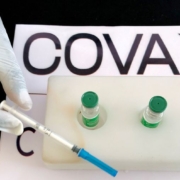The Taj Mahal reopened to the public on June 16 as India, still reeling from a disastrous second wave of the pandemic, pushes to lift restrictions in a bid to revitalize the country’s economy.
The head of the World Trade Organization said there was a pathway for a global deal to get more Covid-19 vaccines to developing countries, despite a split over whether drugs firms should be stripped of their intellectual property rights.
The World Health Organization said on June 1 it has approved a Covid-19 vaccine made by drugmaker Sinovac Biotech for emergency use listing, paving the way for a second Chinese shot to be used in poor countries.
India will have nearly 120 million doses of Covid-19 vaccines available for domestic use in June, the government said on May 30.
India reported on May 29 that there were 173,790 new coronavirus infections during the previous 24 hours, the country’s lowest daily rise in 45 days, while deaths rose by 3,617.
New Delhi will start relaxing its strict coronavirus lockdown next week if new cases continue to drop in the city, the chief minister of India’s capital said on May 23.
Covid fight could return ‘to square one’: experts sound vaccines alarm
AstraZeneca, BNT162b2 (Pfizer and BioNTech), COVAX Facility, COVID-19 shots, COVID-19 Vaccines, Gavi, India, Janssen COVID-19 Vaccine (J&J), mRNA-1273/Moderna COVID-19 Vaccine (Moderna), Reuters, Serum Institute of India, United States, World Health OrganizationIndia’s export ban on Covid-19 shots risks dragging the battle against the pandemic “back to square one” unless wealthy nations step in to plug a gaping hole in the COVAX global vaccine-sharing scheme, health specialists said on May 20.
Nearly two-thirds of people tested in India have shown exposure to Covid-19, a chain of private laboratories said on May 19, indicating a runaway spread of the virus as the daily death toll rose to a record 4,529.
The World Health Organization urged rich countries on May 14 to reconsider plans to vaccinate children and instead donate Covid-19 shots to the COVAX scheme that shares them with poorer nations.
Prime Minister Narendra Modi sounded the alarm over the rapid spread of Covid-19 through India’s vast countryside on May 14, as 4,000 people died from the virus for the third straight day and total infections crossed 24 million.









